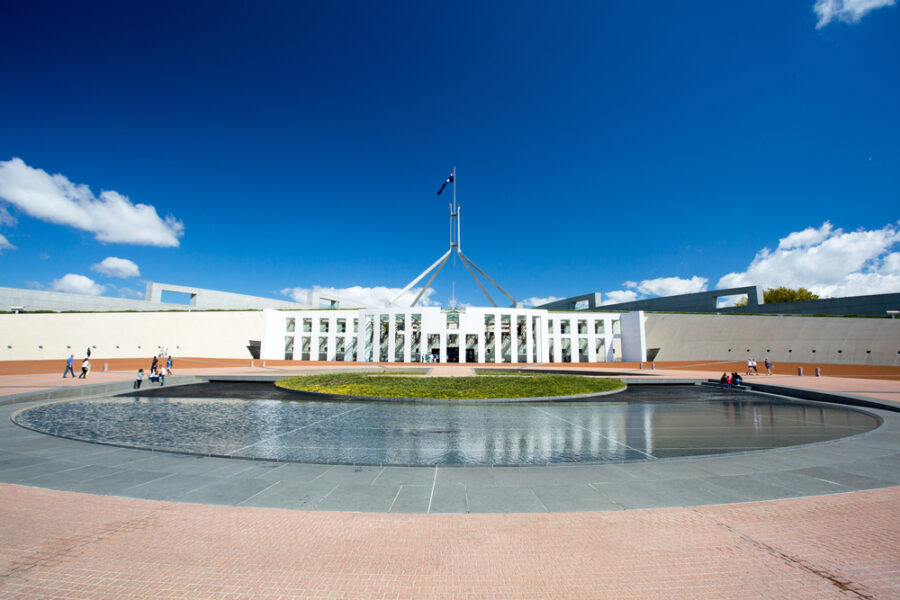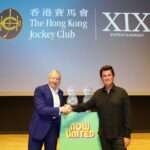Australian senator rejects invitation to return to sports club in light of gambling lobby sponsor

Australian independent senator and former Wallabies captain David Pocock has refused an invitation to rejoin the Australian Parliament Sports Club, citing concerns over its sponsorship by a gambling industry lobby group.
Pocock was removed from the club after questioning a AU$2,500 (US$1,619)1 AUD = 0.6478 USD
2025-10-10Powered by CMG CurrenShift sponsorship from trade organization Responsible Wagering Australia, which he said represented gambling lobbyists buying access to parliamentarians.
The Australian senator, a vocal critic of gambling in sport, had been a keen participant in the club’s casual matches between members of parliament, staffers, and journalists.
Following public backlash, Australian Parliament Sports Club Chief Executive Andy Turnbull extended an olive branch. However, Pocock has declined, saying he would not return unless the club committed to a transparent, open process to review its sponsorships.
The controversy has exposed the potential for corporate interests to gain informal access to politicians through social clubs. While Turnbull denies lobbying, the club was previously listed on the federal lobbyist register. He now plans to seek removal from the register, citing legal advice.
Other members of parliament, Allegra Spender and Sophie Scamps, also resigned from the club in protest, as Pocock accused it of compromising its integrity by accepting sponsorships from vested interests like gambling, alcohol, and pharmaceutical companies.
An Australian online betting regulator, the Northern Territory Racing and Wagering Commission, has also been facing backlash due to accusations of industry bias, conflicts of interest, and regulatory failures.
Abi Bray brings strong researching skills to the forefront of all of her writing, whether it’s the newest slots, industry trends or the ever changing legislation across the U.S, Asia and Australia, she maintains a keen eye for detail and a passion for reporting.
Verticals:
Sectors:
Topics:
Dig Deeper
The Backstory
Inside the push-pull over gambling policy
Australia’s debate over betting in sport has swung between momentum for tougher rules and a counteroffensive by industry groups with deep ties to politics and media. The federal government considered a sweeping ban on online gambling ads after a 2023 parliamentary inquiry, but the effort slowed last year amid heightened lobbying and a crowded legislative calendar. During that lull, the industry emphasized both consumer protection campaigns and the risks of pushing bettors toward offshore operators. Regulators, clubs and lawmakers moved in divergent directions, exposing a broader policy gap: the public’s rising concern about harm versus an economy in which wagering, sports and media remain closely intertwined.
The resulting friction has set the context for key decisions this year. Policymakers face pressure to deliver on ad restrictions while keeping pace with illicit operators and preserving broadcast revenues tied to gambling. The market itself has shifted, with operators consolidating and repositioning just as regulators intensify enforcement. The stakes are commercial and political, but also cultural. The way Australia chooses to manage gambling’s visibility in sport will shape fan experience, league finances and trust in institutions.
Gifts, access and the optics problem
The public scrutiny intensified after disclosures that federal politicians accepted about AU$245,000 in complimentary sports tickets while the government weighed ad limits. That tally, compiled from the parliamentary gift register, included AU$29,000 worth of tickets for Prime Minister Anthony Albanese. The episode crystallized concerns about “soft diplomacy” at a time when advocacy and access tactics are under a microscope. As documented in an analysis of politicians’ gifted tickets during the gambling ad debate, the government ultimately shelved the advertising crackdown in 2024 and deferred the issue until the next election cycle.
That sequence emboldened critics who argue that hospitality can blunt reform momentum, even when public sentiment favors tighter rules. Industry groups counter that engagement is standard and that legal operators fund sport and media, while illegal offshore sites dodge taxes and consumer protections. The optics battle is now central to the legislative fight. Reform advocates want transparency and firewalls around influence. The sector seeks assurance that its voice is heard in policy that could reshape broadcast economics.
A senator’s stand over club sponsorships
The access question turned personal inside Parliament House. Independent senator and former Wallabies captain David Pocock quit the Australian Parliament Sports Club after it accepted AU$2,500 from Responsible Wagering Australia, a peak industry body. Club leaders invited him back after criticism, but he refused unless there was a transparent review of sponsors. The standoff, detailed in reporting on Pocock’s refusal to rejoin the sports club over a gambling lobby sponsor, highlighted how social venues can become conduits for corporate visibility with lawmakers.
The club was previously listed on the federal lobbyist register, though management sought removal, citing legal advice. Other lawmakers also resigned in protest. The dispute underscored the blurred lines between networking, advocacy and lobbying in Canberra’s informal settings. It also reinforced Pocock’s argument that sport’s reliance on wagering sponsorships compromises integrity and policy independence, a critique that links the clubhouse to the broader stadium of influence.
Regulators clamp down on offshore sites
While the ad-ban debate stalled, enforcement escalated online. The Australian Communications and Media Authority ordered internet providers to block several unlicensed operators in April after finding breaches of the Interactive Gambling Act 2001. The decision, part of a campaign that has blocked more than 1,200 sites since 2019, targeted platforms such as Megabet Prize and Casino Intense. The regulator reiterated that illegal sites lack basic consumer protections and urged users to check its licensing register. The latest action is outlined in coverage of ACMA’s move to block four illegal gambling sites.
Even so, the offshore market remains sizable. A 2023 analysis cited by industry estimated around AU$1.1 billion in illegal activity, roughly 15 percent of Australia’s gambling sector. That figure has become a touchstone in policy arguments, with legal operators pressing for rules that keep regulated products visible to deter migration to unlicensed sites. Enforcement alone is not a complete solution. It must be paired with domestic policy that balances harm minimization, advertising controls and sustainable funding for sport and media partners.
Integrity alarms in Australian football
Integrity concerns on the field added urgency. A Sydney court granted two former A-League players conditional release orders after they admitted conduct that corrupted a match’s betting outcome, tied to yellow-card markets in December 2023. The scheme produced more than AU$167,000 in payouts through a South American site, underscoring vulnerabilities in niche wagering markets and cross-border platforms. The case, detailed in reporting on A-League players avoiding convictions in a yellow-card betting case, prompted calls for stronger integrity systems from Macarthur FC and renewed scrutiny of how quickly alerts translate into enforcement.
For lawmakers, the episode is a concrete reminder that integrity is not just a compliance line in a sponsorship contract. It is a risk with real victims and ripple effects across clubs, players and fans. For regulators, it validates investment in data-sharing and faster coordination with global partners. For broadcasters and leagues, it presents a reputational test: how to promote wagering responsibly without inviting prop markets that can be gamed.
Deal-making and global branding reshape the market
The business landscape is shifting alongside policy. PointsBet rebuffed a takeover approach from Betr and instead signed a deal with MIXI Australia, valuing shares at US$1.20 in cash. PointsBet cited execution risk and integration challenges in rejecting Betr’s mix of cash and scrip, noting the rival proposal never matched MIXI’s headline value during a monitoring window. The rationale is laid out in coverage of PointsBet choosing MIXI over Betr. The move underscores how balance sheet certainty and strategic fit matter as operators brace for potential advertising curbs, higher compliance costs and intensifying competition.
Beyond Australia, incumbents are reframing themselves as entertainment brands to broaden revenue and fan engagement. The Hong Kong Jockey Club’s partnership with Simon Fuller’s XIX Entertainment positions racing alongside pop culture to expand its global audience, as described in reporting on the Jockey Club’s push to fuse horse racing and entertainment. The strategy highlights how wagering-linked institutions are diversifying to cushion regulatory shocks and attract younger demographics. That pivot is relevant in Australia, where leagues and broadcasters weigh their own dependencies on betting sponsorships against community expectations.
Taken together, the policy delays in Canberra, the tightening net on illegal sites, the A-League’s integrity scare and a wave of corporate recalibration point to the same reality. Australia is approaching a fork in the road on gambling’s place in sport. Choices on advertising, sponsorship and enforcement will reshape not only operator economics but how fans experience the games. The next steps will determine whether reforms deliver clearer guardrails without driving bettors offshore, and whether the industry can evolve fast enough to keep trust on its side.






